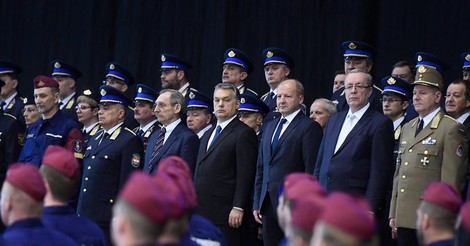Your podcast discovery platform
Curious minds select the most fascinating podcasts from around the world. Discover hand-piqd audio recommendations on your favorite topics.

piqer for: Globalization and politics Global finds
Sezin Öney, originally from Turkey, is based in Budapest and Istanbul. She her journalism career as a foreign news reporter in 1999 and she turned into political analysis as a columnist since 2007. Her interest in her main academic subject area of populism was sparked almost decade ago; and now she focuses specifically on populist leadership, and populism in Turkey and Hungary. She studied international relations, nationalism, international law, Jewish history, comparative politics and discourse analysis across Europe.
Populism Hungaricum: "Mr. Orban Won The Argument"
New York Times correspondent Patrick Kingsley masterfully overviews the case of Hungary in terms of populist leadership in his article "As West Fears the Rise of Autocrats, Hungary Shows What’s Possible".
The senior leaders of Fidesz gathered on the banks of the Danube, in a building known as the Hungarian White House, stunned by the scale of their good fortune. Their right-wing party had won unexpectedly sweeping political power in national elections. The question was how to use it. Several men urged caution. But Viktor Orban, the prime minister-elect, disagreed. The voting result, Mr. Orban continued, had given him the right to carry out a radical overhaul of the country’s Constitution. Mr. Orban won the argument.
And populist leadership is about just that: winning the argument.
There are many other insights that makes one grasp why such "strongmen", divisive as Orban himself, are "trending" in world politics.
President Vladimir V. Putin of Russia, President Recep Tayyip Erdogan of Turkey, Donald J. Trump of the U.S., Jaroslaw Kaczynski of Poland, Narendra Modi of India, Rodrigo Duterte of the Philippines are other examples. The phenomena is global and becoming ever more prevalent since Orban's party Fidesz came into power with a landslide victory.
Rest is history; or rather textbook recipe of "power grab" conducted by the populist "strongmen" once in power. Kingsley depicts "Orban's way" as follows:
First, he moved simultaneously to curb the Hungarian media and the judiciary. Next came the erosion of the country’s checks and balances, which has helped Mr. Orban share the spoils of power with close friends and important businessmen. And then, came the electoral process. The restructuring of Hungary’s election system, including a redrawing the electoral map, has helped him remain in power, even as his party has won fewer votes.
Orban has, by then, become "politics" itself in Hungary, dominating and dictating the agenda. And this is the gist of populist leadership anywhere.
